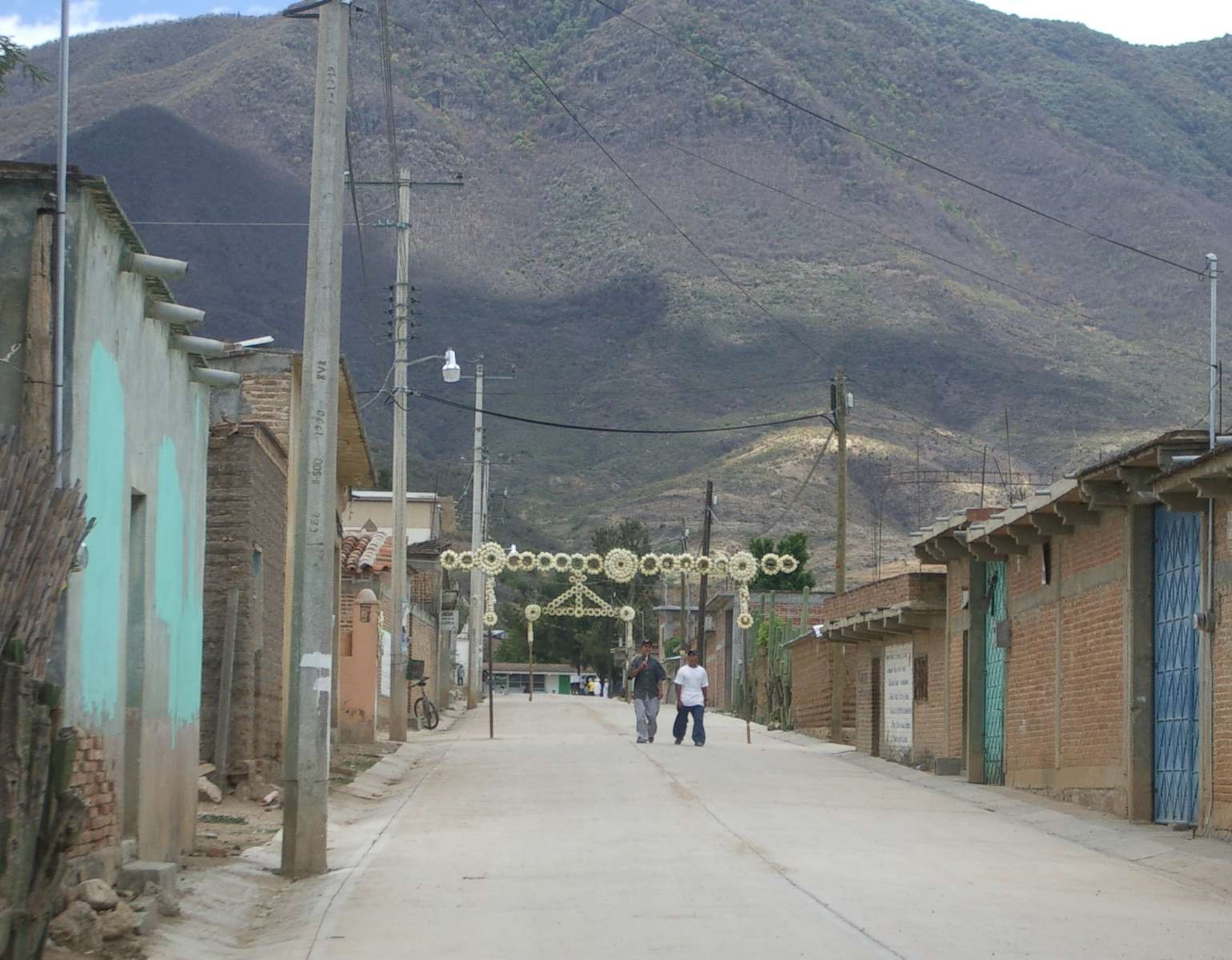S-10. A Valley Zapotec Dialogue
The dialogue below uses many of the expressions you’ve learned. Roberto (Bet [Be’t]), who has come back to San Lucas for Easter week, encounters his friend Jeronimo (Rony [Roony]), who lives in San Lucas. They meet on the Avenida Benito Juárez, the main street. Scroll down to the bottom of this page to find a video recording of this dialogue being read aloud.

Fot. San Lucas Quiaviní’s Avenida Benito Juárez decorated for Easter.
| Dizhsa | Ingles | Xa Rni Buny Ra Dizh | |
|
Rony |
As nia. |
“Hi there!” |
[a’s nniìa’] |
|
Bet |
As. |
“Hi!” |
[a’s] |
|
Rony |
Cali chiu? |
“Where are you going?” |
[cali chìu’?] |
|
Bet |
Chaa mandad. |
“I’m going on an errand.” |
[cha’a’ mandaad] |
|
Rony |
Guc bzenyu na? |
“When did you arrive?” |
[guhc bze’ennyùu’ nah?] |
|
Bet |
A guc tuxman bzenya. |
“I arrived a week ago.” |
[a guhc tuhxmaan bze’ennya’] |
|
Rony |
Xa zuny ladi? |
“How are things over there?” |
[x:a zuuny làadih?] |
|
Bet |
Gwenag. |
“Good.” |
[gweenahg] |
|
Rony |
A zaa buas. |
“Well, I’ve got to go.” |
[a za’a’ buahs] |
|
Bet |
As buas. Yzhajaën. |
“Ok. See you later.” |
[a’s buahs. yzhàaja’ëhnn] |
|
Rony |
Yzhajaën buas, erre. |
“Ok. See you later, friend.” |
[yzhàaja’ëhnn buahs erre’eh] |
Conversations like this are more likely to take place between males, both because males immigrate more often and because they are more likely to have the time to chat with friends in the street.

